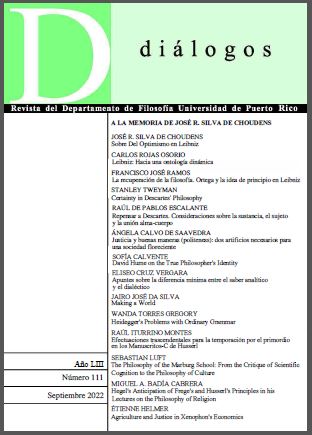Abstract
In this article José R. Silva de Choudens examines the interpretation given by José Ortega y Gasset in Del Optimismo en Leibniz to a key topic in Leibniz’s metaphysics: his peculiar way of understanding God’s creative act in virtue of which he claims that human freedom is compatible with the determinism that prevails in the phenomenal world. According to Ortega, Leibniz fails in this effort because his absolute logicism inevitably leads to a necessitarianism similar to that of Spinoza. This view is analyzed in light of Leibniz’s ontological and epistemological principles that Ortega either ignores, or misunderstands their meaning and implications in order to show that the inconsistency does not lie in the manner in which Leibniz thinks of God, but in Ortega’s interpretation of this crucial aspect of Leibniz’s metaphysics

This work is licensed under a Creative Commons Attribution-NonCommercial 4.0 International License.

